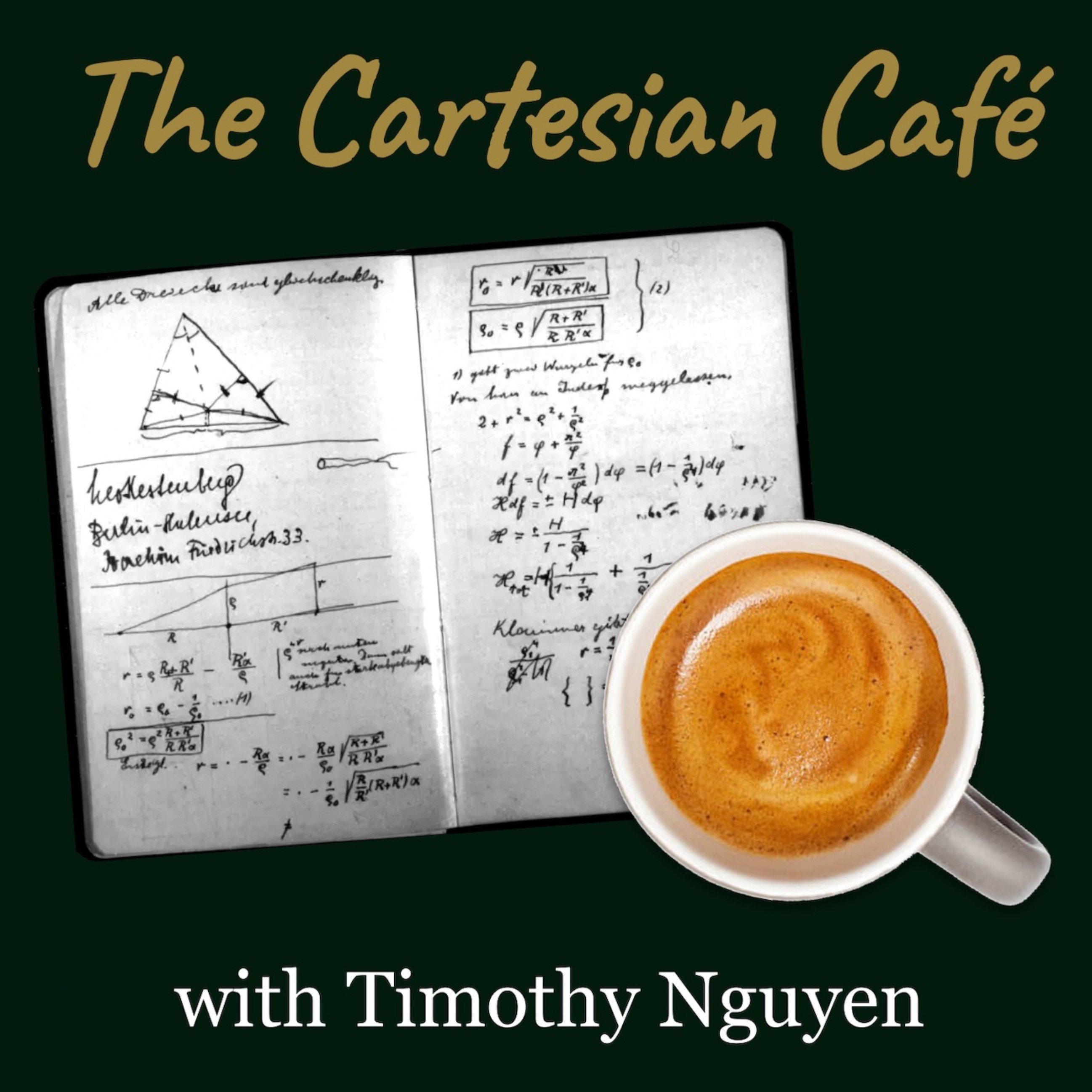Antonio Padilla | Fantastic Numbers, Naturalness, and Anthropics in Physics
Description
Antonio (Tony) Padilla is a theoretical physicist and cosmologist at the University of Nottingham. He serves as the Associate Director of the Nottingham Centre of Gravity, and in 2016, Tony shared the Buchalter Cosmology Prize for his work on the cosmological constant. Tony is also a star of the Numberphile YouTube channel, where his videos have received millions of views and he is also the author of the book Fantastic Numbers and Where to Find Them: A Cosmic Quest from Zero to Infinity.
Patreon: https://www.patreon.com/timothynguyen
This episode combines some of the greatest cosmological questions together with mathematical imagination. Tony and I go through the math behind some oft-quoted numbers in cosmology and calculate the age, size, and number of atoms in the universe. We then stretch our brains and consider how likely it would be to find your Doppelganger in a truly large universe, which takes us on a detour through black hole entropy. We end with a discussion of naturalness and the anthropic principle to round out our discussion of fantastic numbers in physics.
Part I. Introduction
00:00 : Introduction
01:06 : Math and or versus physics
12:09 : Backstory behind Tony's book
14:12 : Joke about theoreticians and numbers
16:18 : Technical outline
Part II. Size, Age, and Quantity in the Universe
21:42 : Size of the observable universe
22:32 : Standard candles
27:39 : Hubble rate
29:02 : Measuring distances and time
37:15 : Einstein and Minkowski
40:52 : Definition of Hubble parameter
42:14 : Friedmann equation
47:11 : Calculating the size of the observable universe
51:24 : Age of the universe
56:14 : Number of atoms in the observable universe
1:01:08 : Critical density
1:03:16: 10^80 atoms of hydrogen
1:03:46 : Universe versus observable universe
Part III. Extreme Physics and Doppelgangers
1:07:27 : Long-term fate of the universe
1:08:28 : Black holes and a googol years
1:09:59 : Poincare recurrence
1:13:23 : Doppelgangers in a googolplex meter wide universe
1:16:40 : Finitely many states and black hole entropy
1:25:00 : Black holes have no hair
1:29:30 : Beckenstein, Christodolou, Hawking
1:33:12 : Susskind's thought experiment: Maximum entropy of space
1:42:58 : Estimating the number of doppelgangers
1:54:21 : Poincare recurrence: Tower of four exponents.
Part IV: Naturalness and Anthropics
1:54:34 : What is naturalness? Examples.
2:04:09 : Cosmological constant problem: 10^120 discrepancy
2:07:29 : Interlude: Energy shift clarification. Gravity is key.
2:15:34 : Corrections to the cosmological constant
2:18:47 : String theory landscape: 10^500 possibilities
2:20:41 : Anthropic selection
2:25:59 : Is the anthropic principle unscientific? Weinberg and predictions.
2:29:17 : Vacuum sequestration
Further reading: Antonio Padilla. Fantastic Numbers and Where to Find Them: A Cosmic Quest from Zero to Infinity
Twitter: @iamtimnguyen
Webpage: http://www.timothynguyen.org
More Episodes
Jay McClelland is a pioneer in the field of artificial intelligence and is a cognitive psychologist and professor at Stanford University in the psychology, linguistics, and computer science departments. Together with David Rumelhart, Jay published the two volume work Parallel Distributed...
Published 10/02/24
Published 10/02/24
Michael Freedman is a mathematician who was awarded the Fields Medal in 1986 for his solution of the 4-dimensional Poincare conjecture. Mike has also received numerous other awards for his scientific contributions including a MacArthur Fellowship and the National Medal of Science. In 1997, Mike...
Published 07/19/24


